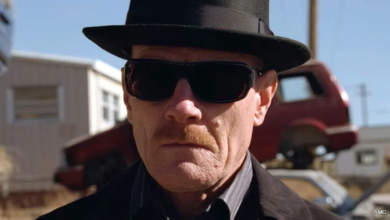“Did I like him?”: Breaking Bad Showrunner Vince Gilligan Has Grown to Hate Walter White But It’s What Bryan Cranston Said When Asked if He Liked Heisenberg That No Fan is Ready for
It would seem that Bryan Cranston and Vince Gilligan cannot agree if Walter White from Breaking Bad is a good man or not.
One of the most well-written characters in the history of television has to be Walter White from Breaking Bad. Audiences got the opportunity to see a man change, becoming someone unrecognizable from his older self. From being a desperate high school teacher who made a bad decision to a drug lord who lit the match that set his entire world on fire, he turned from the protagonist to the antagonist of his own story.
What made his actions all the more complicated was how he made it difficult for the audience to empathize with him. Due to this, many began to dislike his character, even though they understood the self-preservation and greed behind his actions. Interestingly enough, his very creator, Vince Gilligan, does not like him.
During an interview, the showrunner revealed the reasoning behind why he hated his own creation, and Bryan Cranston revealed his reasoning why he didn’t.
Walter White—The Creation That Repulsed His Creator
During an interview with The New Yorker, Vince Gilligan revealed an interesting piece of information about his hit series, Breaking Bad. It would seem that even though he is one of the most iconic characters in television history, the showrunner cannot stand Walter White.
It is safe to say that such a confession would raise a lot of eyebrows among the fans. Elaborating on his perspective, he mentioned that he did not like the character because of his victim mentality.
Towards the end of the show, there was one very distinctive motivation that made Walter do all of the things he did. He believed his actions were just, because he created a mentality around himself that he was the one that had been done wrong. Due to this, he believed that he could do as he pleased as a survival strategy.
Like, wait a minute, why was this guy so great? He was really sanctimonious and full of himself. He had an ego the size of California and always saw himself as the victim.
Towards the end of the show, there was one very distinctive motivation that made Walter do all of the things he did. He believed his actions were just, because he created a mentality around himself that he was the one that had been done wrong. Due to this, he believed that he could do as he pleased as a survival strategy.
Like, wait a minute, why was this guy so great? He was really sanctimonious and full of himself. He had an ego the size of California and always saw himself as the victim.
It would seem that this aspect of his character made Gilligan dislike him, and the reality he created around himself, thanks to his ego, seemed to frustrate the showrunner quite a lot.
Objectivity vs. Subjectivity
Many would assume that the actor who played such a character would share a similar perspective with the person who created him. However, Bryan Cranston has a very different outlook when it comes to Walter White, as a person. It would seem that being in his shoes and understanding what makes him think the way that he does and do the things that he does made the actor have a soft spot for the character.
I can only answer that question in retrospect, because I didn’t have the luxury of objectivity back then. Did I like Walter White? Now I’m thinking of him as a character. He was a phenomenal character to play.
Because of his complexity, his loss of direction, and the emergence of an ego that he hadn’t had the permission to show. Did I like him? I mean, if you ask someone if they like themselves, they’d be like, ‘Yes’. Basically yes.
During an interview with The Guardian, he was asked if he liked Walter, and his answer may surprise many fans. The actor revealed that he had an excellent time playing the character, and when he was starting out, he was unable to be objective with what he thought of him. This forced him to understand the character through and through from his own eyes and not from how the world saw him.
Well, yeah. Because at the time you’re so in it. You’re so subjective. You’re not seeing how other people perceive you.
I think he’d say – I’d say – that he tried to be a good person.
He got so engrossed in the character of Walter that the two began to blur, mentioning that the question was similar to someone asking Cranston if he liked himself. Finally, he ended by saying that from his perspective, Walter always tried to be a good person, no matter how many times he failed to do so. Due to this, Cranston cannot seem to get himself to dislike the character.


